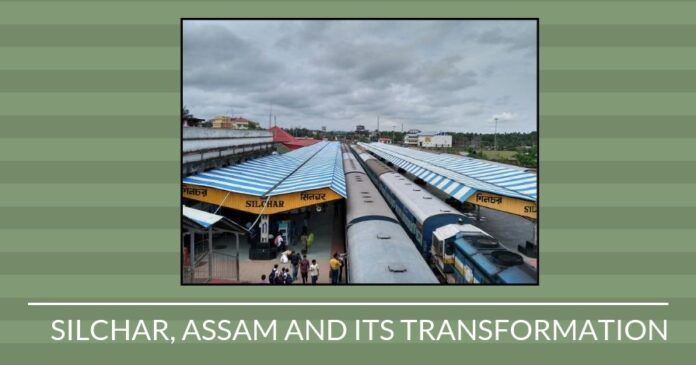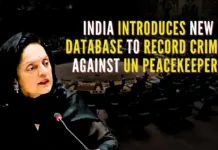
(For those of us who are regular readers of news magazines, this name would sound vaguely familiar. Silchar is a town in Assam bordering Bangladesh.
Paul is 40 years old and lives in the US, with his wife and daughter. Paul’s family is from Silchar and lives there.
This is a narrative of the change that is happening in Silchar, as told by Paul.)
Paul’s grandparents were zamindars in erstwhile East Bengal (later East Pakistan and now Bangladesh). They were forced to migrate during partition, leaving behind their belongings, and had to start all over again. Paul remembers their narration that this was the story of most Hindus in East Bengal. The people living on the western part of East Bengal, migrated to Calcutta and other cities in West Bengal, while those living on the eastern side, found it easier to migrate to Silchar.
Assam is getting five new airports, including one at Silchar within the next few years. Silchar residents can now fly anywhere in India or possibly even abroad!
Silchar, having a mix of Hindu and Muslim population was and remains a communally sensitive place. Thanks to the presence of the army, and the fear in the minds of people (Hindus and Muslims alike) of the army, few clashes if any, have taken place. There were skirmishes in the aftermath of Babri in 1992, and Paul recalls his father wielding lathis along with his friends, to save their neighborhood.
This is not the story of Paul, or of communal clashes, or Hindu Muslim unity, but of Silchar, Assam.
Silchar had poor road connectivity over the years. The Golden quadrilateral project running North to South and East to West culminated in the East in Silchar, and road connectivity improved. However, Silchar had only a meter-gauge link by train to Guwahati. Due to the tracks being meter-gauge, the trains were smaller and infrequent, and one had to go to Guwahati, to change trains, to travel to anywhere else in the nation (Guwahati-Calcutta and all other places were broad-gauge). There was no air connectivity, with Guwahati being the only domestic airport in the North-East.
Meter-gauge to Broad-gauge conversion project was sanctioned in the early ’90s but stuck for more than 23 years. For those, who think that this must have been due to the difficult terrain in Assam, or other issues in a border to1wn, please read forward.
Buses, incl. luxury buses were the only source of commute to Guwahati and rest of Assam. Not surprisingly, politicians and their namesake transport companies controlled permits for this route to Silchar. A bus ticket from Silchar to Guwahati costs about eight hundred rupees one-way. They had a vested interested in the conversion being delayed.
When Modi government came to power in 2014, they decided not to announce any new railway projects for the first time since independence, in their railway budget. They instead said the focus is to complete all stuck projects, before announcing any new lines. Silchar was a beneficiary of this, and in six months, the meter-gauge to broad-gauge conversion was complete. Trains could carry many more passengers and became more frequent – and for the first time since independence, people of Silchar – Muslims and Hindus alike, could travel to Delhi or Calcutta, without having to change trains.
The train fare to Guwahati is now only fifty rupees, resulting in a savings of seven hundred and fifty rupees per one-way trip! People who have “lost” income, due to this change, are naturally not happy. But they have more coming their way. Assam is getting five new airports, including one at Silchar within the next few years. Silchar residents can now fly anywhere in India or possibly even abroad!
Coming back to why Silchar was in the news in recent times. After the NRC was published at the directive of the Supreme Court, Mamata Banerjee, decided to send a delegation (comprising primarily of Muslim MPs) to – of all the places, Silchar Assam! The delegation was stopped by the Assam government from reaching Silchar for fear of them ending up stoking communal clashes.
If you think the last two paragraphs have any connection to each other, the author is not responsible!
(Names and places have not been changed. This is based on a true story as narrated to the author N.Raghavendran by Paul)
Note:
1. The views expressed here are those of the author and do not necessarily represent or reflect the views of PGurus.
- Saving Inderdeep - July 13, 2021
- Why caste does not matter? - August 13, 2019
- Bifurcating a state– Andhra style!! - August 10, 2019











I think Silchar have direct Air connectivity since last so many years. Kindly verify.